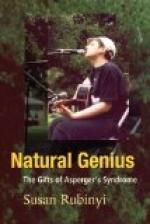With the vain and giddy throng,
FATHER! we have wandered long;
Eager from Thy paths to stray,
Chosen the forbidden way;
Heedless of the light within,
Hurried on from sin to sin,
And with scoffers madly trod
On the mercy of our God!
Now to where Thine altars
burn,
FATHER! sorrowing we return.
Though forgotten, Thou hast
not
To be merciful forgot;
Hear us! for we cry to Thee—
Miserere Domine!
From the burden of our grief
Who, but Thou, can give relief?
Who can pour Salvation’s
light
On the darkness of our night?
Bowed our load of sin beneath,
Who can snatch our souls from
death?
Vain the help of man!—in
dust
Vainly do we put our trust!
Smitten by Thy chastening
rod,
Hear us, save us, SON OF GOD!
From the perils of our path,
From the terrors of thy wrath,
Save us, when we look to thee—
Miserere Domine!
Where the pastures greenly
grow,
Where the waters gently flow,
And beneath the sheltering
ROCK
With the shepherd rests the
flock.
Oh, let us be gathered there
Richly of Thy love to share;
With the people of Thy choice
Live and labor and rejoice,
Till the toils of life are
done,
Till the fight is fought and
won,
And the crown, with heavenly
glow,
Sparkles on the victor’s
brow!
Hear the prayer we lift to
Thee—
Miserere Domine!
THE
KINGDOMS OF NATURE PRAISING GOD:
A SHORT ESSAY ON THE 148TH PSALM.
BY REV. C.A. BARTOL.
Surrounded as we are with the art and handicraft of man—almost everything we see bearing the mark of his finger, the house and the street, the market and exchange, every instrument and utensil—it is well, occasionally, to look forth from this little world of custom and convenience we ourselves have constructed, into that which bears the impress of the Almighty’s hand—is still as it was left from His forming strength, and brings us into immediate communion with His Infinite mind. Let us, at least, listen to the notes of David’s lyre on the creative Majesty.
After an invocation to the heavenly host, the Psalmist calls first on the forms of inanimate and inorganic existence. These things, of which he enumerates a few, praise the power of God. The crags and headlands, jarred and worn by the billows they breast; the granite peaks, bald and grey, under light and tempest, with the silent host of rocky boulders, swept, we know not by what convulsions, from their native seat, stand up as the first rank in the choir of the Maker’s worship; and infidelity and atheism are hushed and abashed by their lofty praise.




